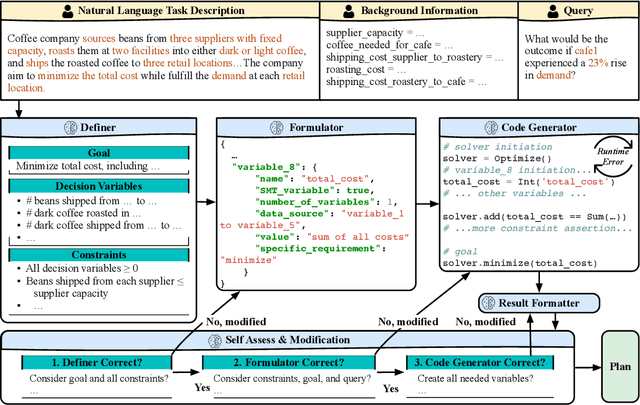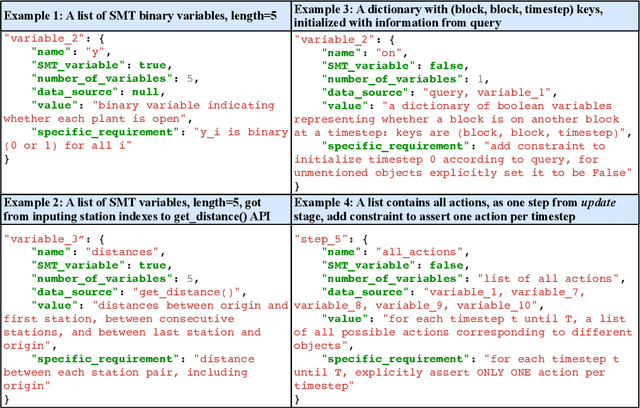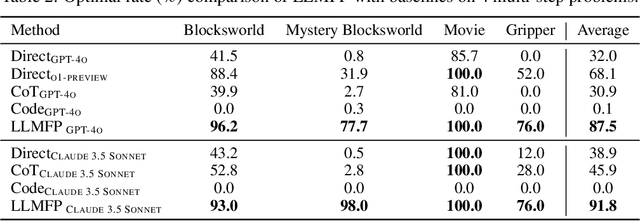Planning Anything with Rigor: General-Purpose Zero-Shot Planning with LLM-based Formalized Programming
Paper and Code
Oct 15, 2024



While large language models (LLMs) have recently demonstrated strong potential in solving planning problems, there is a trade-off between flexibility and complexity. LLMs, as zero-shot planners themselves, are still not capable of directly generating valid plans for complex planning problems such as multi-constraint or long-horizon tasks. On the other hand, many frameworks aiming to solve complex planning problems often rely on task-specific preparatory efforts, such as task-specific in-context examples and pre-defined critics/verifiers, which limits their cross-task generalization capability. In this paper, we tackle these challenges by observing that the core of many planning problems lies in optimization problems: searching for the optimal solution (best plan) with goals subject to constraints (preconditions and effects of decisions). With LLMs' commonsense, reasoning, and programming capabilities, this opens up the possibilities of a universal LLM-based approach to planning problems. Inspired by this observation, we propose LLMFP, a general-purpose framework that leverages LLMs to capture key information from planning problems and formally formulate and solve them as optimization problems from scratch, with no task-specific examples needed. We apply LLMFP to 9 planning problems, ranging from multi-constraint decision making to multi-step planning problems, and demonstrate that LLMFP achieves on average 83.7% and 86.8% optimal rate across 9 tasks for GPT-4o and Claude 3.5 Sonnet, significantly outperforming the best baseline (direct planning with OpenAI o1-preview) with 37.6% and 40.7% improvements. We also validate components of LLMFP with ablation experiments and analyzed the underlying success and failure reasons.
 Add to Chrome
Add to Chrome Add to Firefox
Add to Firefox Add to Edge
Add to Edge